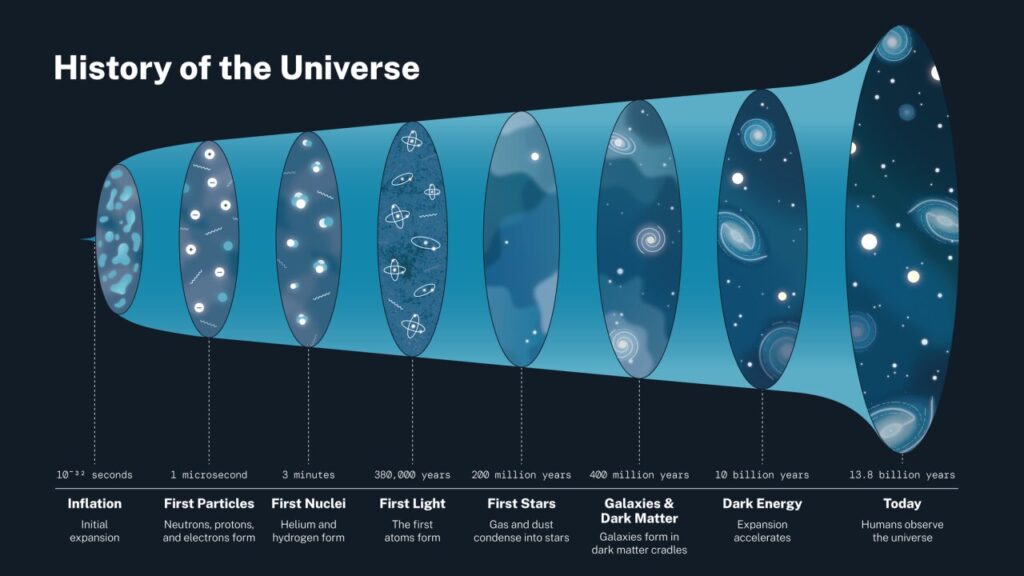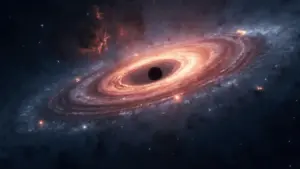
The universe, a vast expanse that began with the Big Bang approximately 13.8 billion years ago, continues to intrigue scientists and astronomers. Recent findings from the South Pole Telescope have provided new insights into the nature of dark energy, potentially reshaping our understanding of the cosmos. These observations, covering 1/25th of the sky, have revealed that dark energy, which constitutes nearly 70% of the universe, might be evolving over time.
Our current understanding of the universe’s origins is based on the “hot Big Bang” model, which describes the early universe as a primordial fireball of hot plasma. This model has been refined over decades with data from modern telescopes, including faint radiation known as the cosmic microwave background (CMB), which offers a glimpse into the universe 400,000 years after the Big Bang.
The Role of Dark Energy in Cosmic Expansion
Dark energy is a mysterious force that counteracts gravity, causing the universe to expand at an accelerating rate. Discovered in 1998 through observations of distant supernovae, this force challenges the expectation that gravity would slow down the universe’s expansion. The simplest explanation for dark energy has been Einstein’s cosmological constant, a concept he introduced and later retracted, which acts as a repelling force.
However, new data from the South Pole Telescope, combined with observations from the Dark Energy Spectroscopic Instrument (DESI), suggest that dark energy may not be constant. Instead, it appears to be weakening over time, a phenomenon that could halt the universe’s accelerating expansion in the distant future.
Groundbreaking Observations from the South Pole
The South Pole Telescope, equipped with 16,000 detectors sensitive to millimeter-wavelength light, has been pivotal in these discoveries. By analyzing data collected over two years, researchers have made precise measurements of temperature and polarization patterns in the CMB, revealing the distribution of matter in the early universe.
“Our observations indicate that dark energy’s influence is diminishing, which challenges the long-held cosmological constant model,” said a lead researcher from the South Pole Telescope team.
These findings have been submitted for peer review and represent a significant step forward in cosmological research. The data also enhance our understanding of the sound horizon scale from 13.8 billion years ago, providing tighter constraints on existing cosmological models.
Implications for Cosmology and Future Research
The potential evolution of dark energy raises questions about the validity of Einstein’s theory of relativity and the cosmological constant. While current evidence is not yet definitive, it suggests the need for a revised model of the universe that accounts for time-evolving dark energy.
Future research will be crucial in confirming these findings. The DESI collaboration plans to upgrade its instrument, while the South Pole Telescope is set to receive an upgraded receiver in 2028. Additionally, the Simons Observatory and the CMB-S4 experiment will provide further data in the coming years.
“We are on the brink of potentially rewriting our understanding of the universe’s expansion,” noted a cosmologist involved in the DESI collaboration.
As these projects progress, scientists hope to gather enough evidence to conclusively determine whether the universe’s accelerating expansion is indeed losing momentum. Such a discovery would not only redefine our understanding of dark energy but also have profound implications for the fate of the universe.
For now, the scientific community eagerly anticipates further developments, as these observations could inspire a new model of the universe, one that aligns with the evolving nature of dark energy.





